On March 19, the University of Science and Technology of China (USTC) and Guizhou University (GZU) held a signing ceremony in Hefei for a college-level strategic cooperation agreement under the “cluster-based” support initiative for the physics discipline.
The event was attended by Deng Jiansong, Deputy Party Secretary of USTC, and Wang Jinrong, Vice President of Guizhou University, along with heads of the School of Physical Sciences and the School of Earth and Space Sciences at USTC, members of the support team, and representatives from Guizhou University’s Office of International Relations, School of Physics, and School of Resources and Environment Engineering. The ceremony was presided over by Zhou Zhengwei, Party Secretary and Deputy Dean of the School of Physical Sciences at USTC.
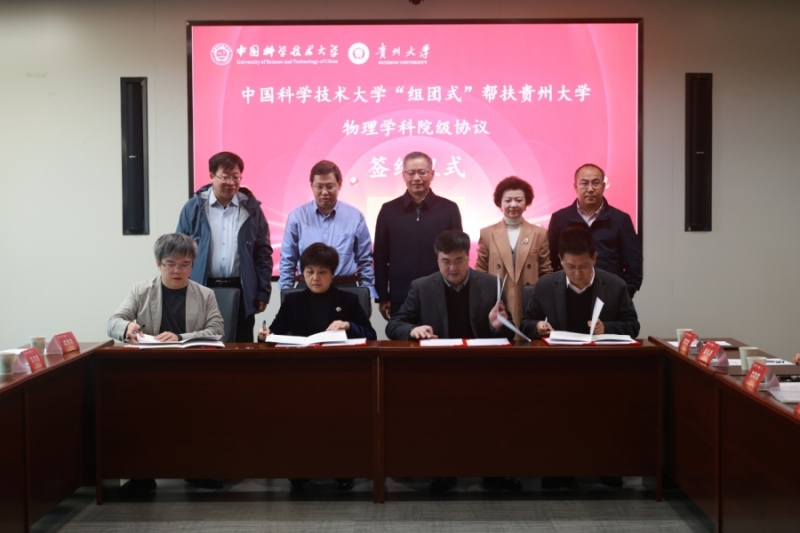
During the ceremony, Deng Jiansong emphasized that the core mission of the strategic cooperation between USTC and Guizhou Province is disciplinary support and win-win collaboration. He highlighted that physics is one of USTC’s strongest disciplines, carrying the responsibility of serving national strategies. Deng outlined three key areas for the support initiative: first, careful planning to identify breakthrough points in GZU's physics discipline development; second, targeted measures to deepen the dual drive of "academic excellence and talent cultivation" and establish a long-term cooperation mechanism; third, broader influence to foster the coordinated development of higher education in the region.
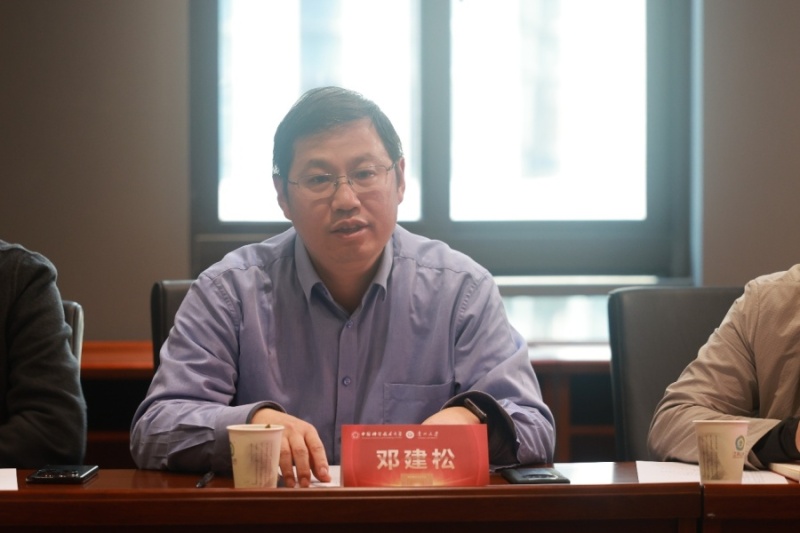
Speaking on behalf of GZU, Wang Jinrong expressed sincere gratitude to USTC for its longstanding support. He noted that USTC’s innovative model of combining "external support and internal development" has created a new paradigm for cross-regional university cooperation. Wang said the cooperation would not only focus on upgrading disciplinary evaluations but would also implement three key initiatives: optimizing discipline planning, jointly building research platforms, and cultivating talent pipelines. He affirmed GZU's commitment to providing strong support and services for the support team, expressing confidence that, by leveraging USTC’s academic strengths and Guizhou’s regional resources, the disciplines of physics and astronomy would achieve significant improvements and become key drivers of national strategies and regional industrial development.
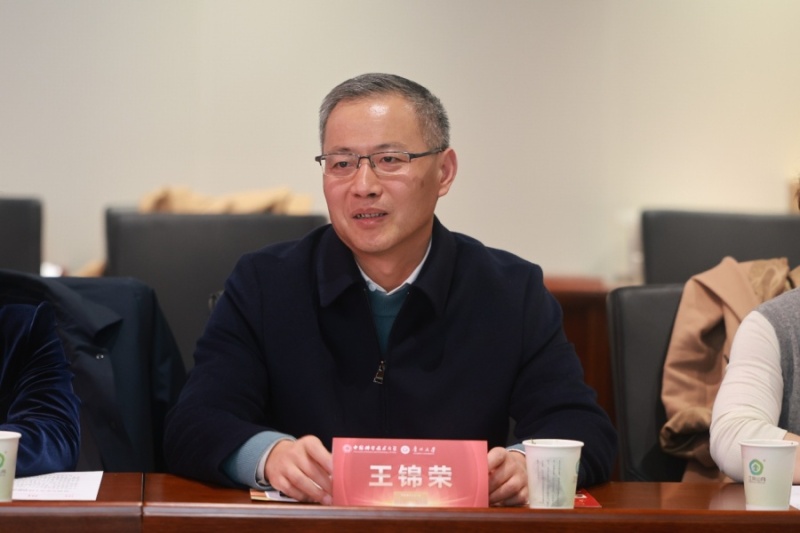
Following the signing ceremony, the two sides held in-depth discussions on the implementation pathway. Chen Yu'ao, Executive Dean of the School of Physical Sciences at USTC, introduced the first support team, composed of 13 leading scholars covering theoretical physics, condensed matter physics, optics, astronomy, and other fields. He expressed confidence that the team would rapidly boost the development of the discipline, particularly leveraging the unique resources of the FAST radio telescope to achieve a "1+1>2" synergy effect in frontier areas like astrophysics. Ni Huaiwei, Executive Dean of the School of Earth and Space Sciences, Zhou Zhengwei, and Xue Yongquan, Deputy Dean of the School of Physical Sciences, all pledged full support to ensure the successful progress of the initiative and the early achievement of set goals. Team members Qin Liping, Xiang Guoyong, Yuan Junhua, Fan Lulu, and Deng Youjin also committed to advancing the overall development of GZU's physics discipline, with a focus on platform building, talent cultivation, and scientific research outputs.
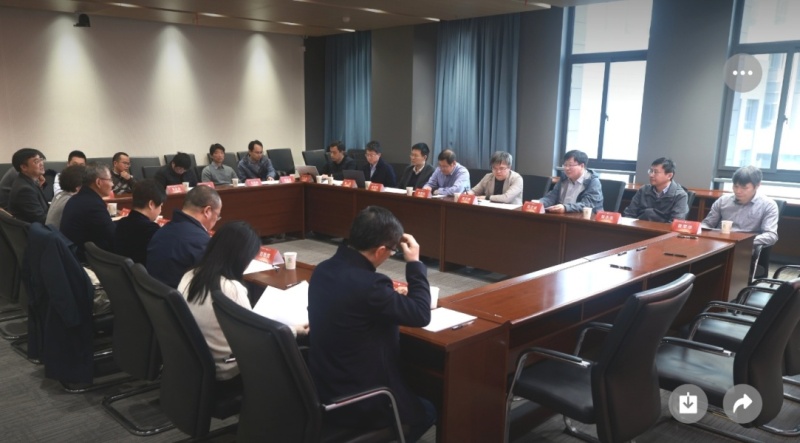
It is reported that this support team is the largest of its kind in the province’s “cluster-based” disciplinary support program, comprising nine recipients of the National Science Fund for Distinguished Young Scholars, three recipients of the Excellent Young Scientists Fund, and one provincial leading talent. The team will focus on key tasks during the support cycle, including advancing disciplinary evaluation upgrades, securing national-level research platforms, and undertaking major scientific research projects. Prior to the signing, the two universities had already engaged in collaborative activities, such as co-hosting the “FAST & Wide-field Survey Telescopes Multi-Wavelength Observation and Theory Symposium” and sharing best practices on grassroots Party branch development and the advancement of highly educated Party members. The formal signing of the agreement marks an acceleration of the “cluster-based” support initiative and is expected to help Guizhou University’s physics discipline overcome development bottlenecks and establish a high-level academic hub with distinct western regional characteristics.
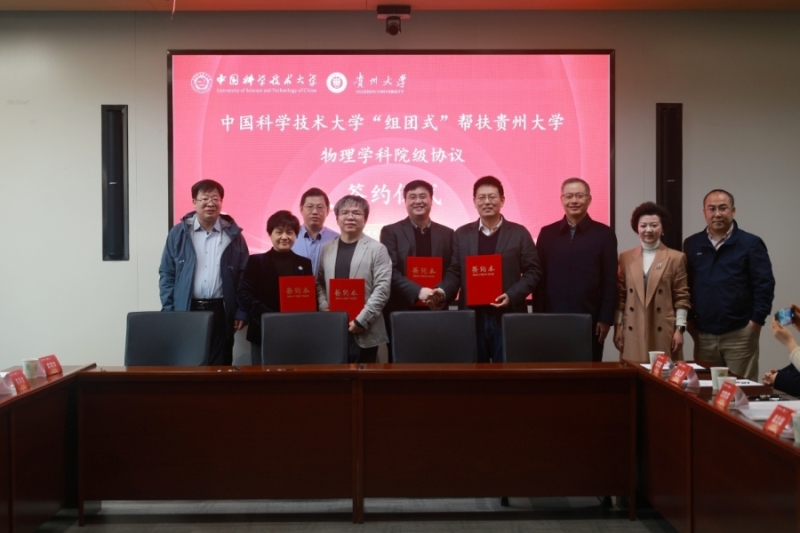
Editors: Pang Aizhong
Chief Editor: Li Xufeng
Senior editor: Ding Long
Translator: Xiao Qi